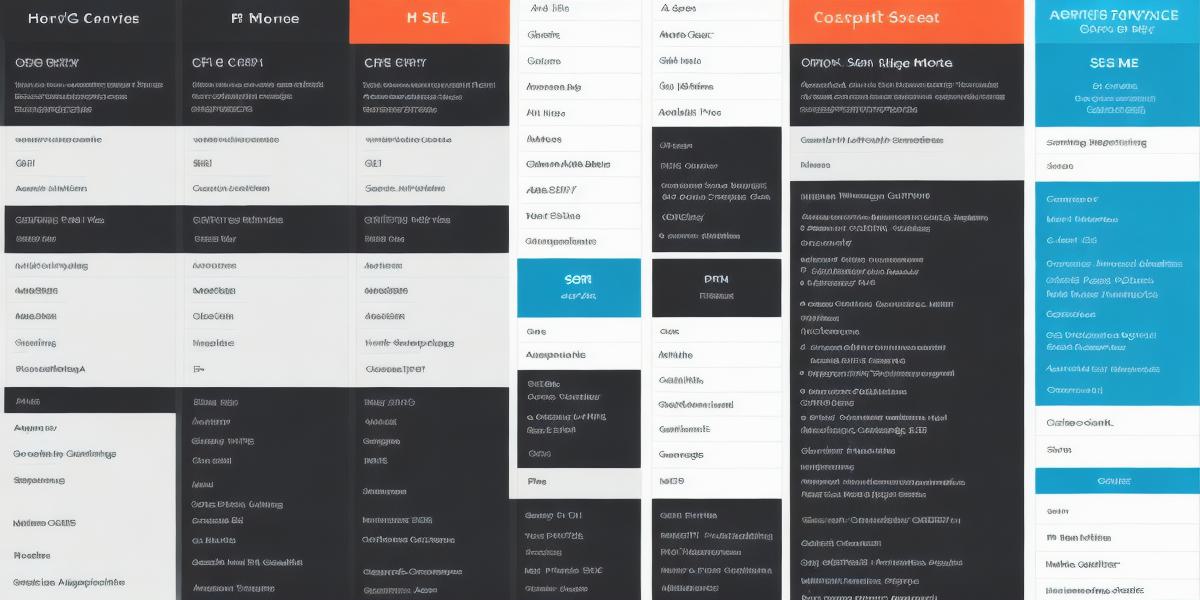“Which Hosting Services Is the Best? Making Informed Decisions”

Introduction:
As a programmer, you know how important it is to have a reliable and efficient hosting service for your website or application. With so many options available, it can be overwhelming to choose the best one. In this article, we will explore some of the top hosting services on the market and provide you with the information you need to make an informed decision.
1. Bluehost:
Bluehost is a popular choice for web hosting due to its user-friendly interface and excellent customer support. It offers a variety of hosting plans to suit different needs, including shared hosting, dedicated hosting, and managed WordPress hosting. Bluehost also has a strong security system in place to protect your website from cyber threats.
- SiteGround:
SiteGround is known for its fast and reliable hosting services, with excellent uptime rates and lightning-fast page load times. It offers several hosting plans, including shared hosting, dedicated hosting, and cloud hosting. SiteGround also has a strong focus on security, with daily backups and a web application firewall to protect your website from cyber threats.3. A2 Hosting:
A2 Hosting is another popular choice for web hosting due to its fast and reliable hosting services. It offers several hosting plans, including shared hosting, dedicated hosting, and reseller hosting. A2 Hosting also has a strong focus on security, with daily backups and a web application firewall to protect your website from cyber threats.
- DigitalOcean:
DigitalOcean is a cloud-based hosting service that offers high levels of customization and flexibility. It is popular among developers and businesses that require more control over their hosting environment. DigitalOcean offers a variety of server sizes and plans, as well as a range of tools and resources to help you manage your server effectively.5. Cloudflare:
Cloudflare is a content delivery network (CDN) that can improve the performance and security of your website. It works by caching your website’s content on servers around the world, which reduces the load on your hosting server and speeds up page load times for users in different locations. Cloudflare also provides a range of security features, including a web application firewall and DDoS protection.
Conclusion:
When choosing a web hosting service, it is important to consider your specific needs and requirements. Each of the hosting services mentioned above has its own strengths and weaknesses, so it is essential to do your research and compare the options carefully. By making an informed decision, you can ensure that your website or application is hosted on a reliable and efficient platform that will help you achieve your goals.
FAQs:
- What is web hosting?
Web hosting is a service that provides you with the resources and infrastructure needed to host your website or application online. This includes server space, bandwidth, and other technical resources. - How do I choose the right hosting plan for my needs?
When choosing a hosting plan, consider your website’s traffic volume, storage requirements, and any specific features or functionality that you require. Shared hosting is typically the most affordable option, while dedicated hosting is more expensive but offers more resources and customization options. - What is a content delivery network (CDN)?
A CDN is a network of servers that work together to deliver website content to users around the world. By caching your website’s content on servers in different locations, a CDN can improve page load times and reduce the load on your hosting server. - What are some common cybersecurity threats for websites?
Some common cybersecurity threats for websites include malware attacks, SQL injection attacks, cross-site scripting (XSS) attacks, and denial-of-service (DoS) attacks. To protect your website from these threats, it is important to have a strong security system in place, including regular backups, a web application firewall, and DDoS protection.








